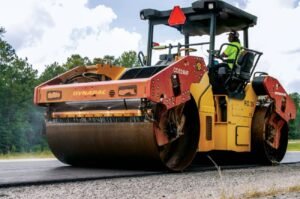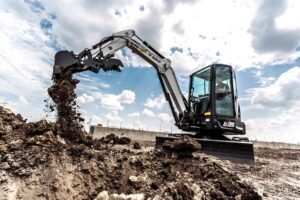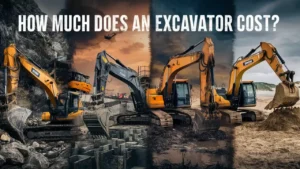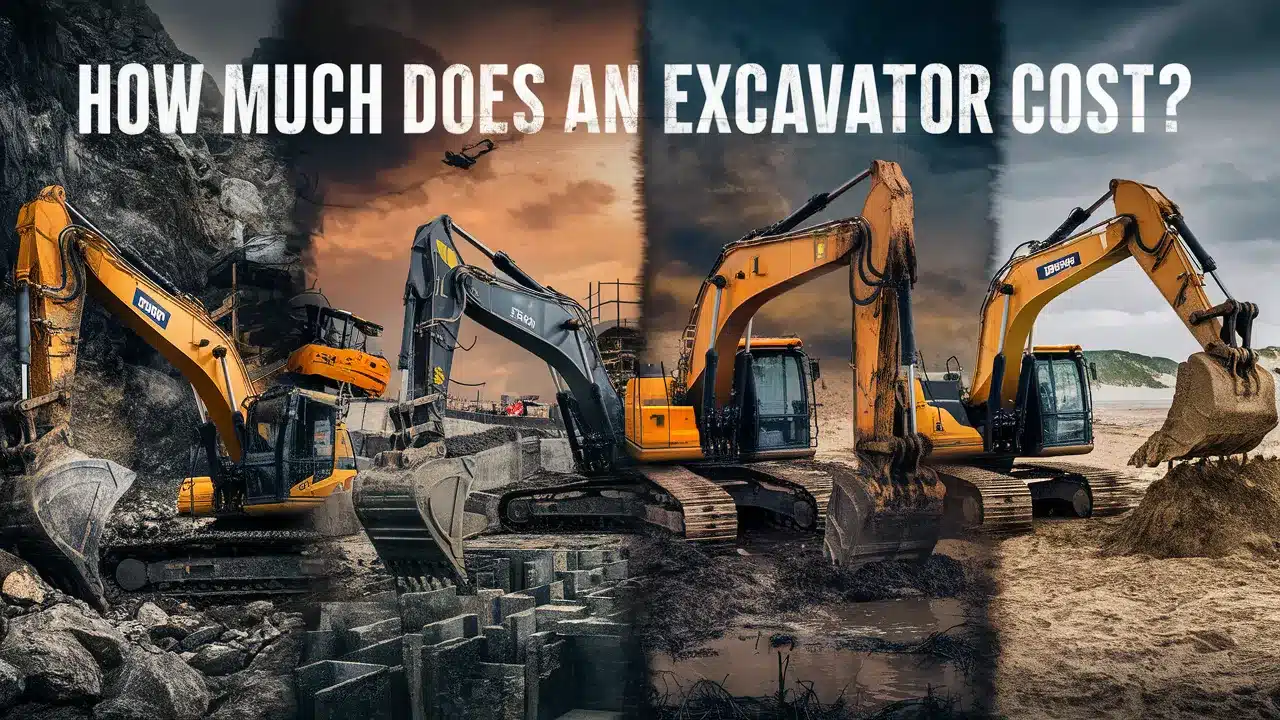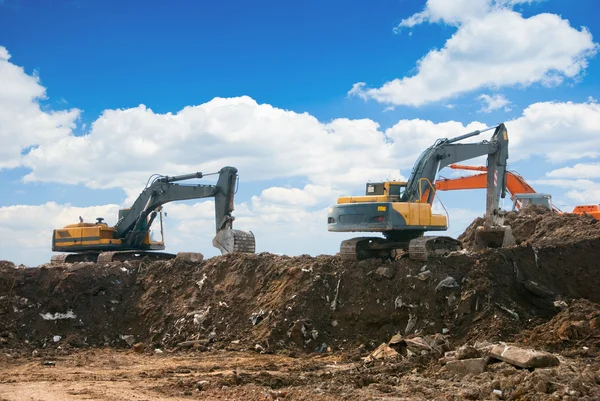Selecting the right excavator can make a huge difference in how well your project goes. If you’re feeling a bit overwhelmed with trying to figure out what to do, don’t worry. We are here to help clear up the confusion and get you into the right machine for what you need.
When selecting an excavator, it’s essential to understand the various types available. Each type, from crawler to wheeled and mini excavators, has unique features tailored to specific tasks. Knowing these differences can save time and costs in your projects.
Today, we’re going to talk about the different types of excavators that are out there and help you figure out which one is going to be the best for you.
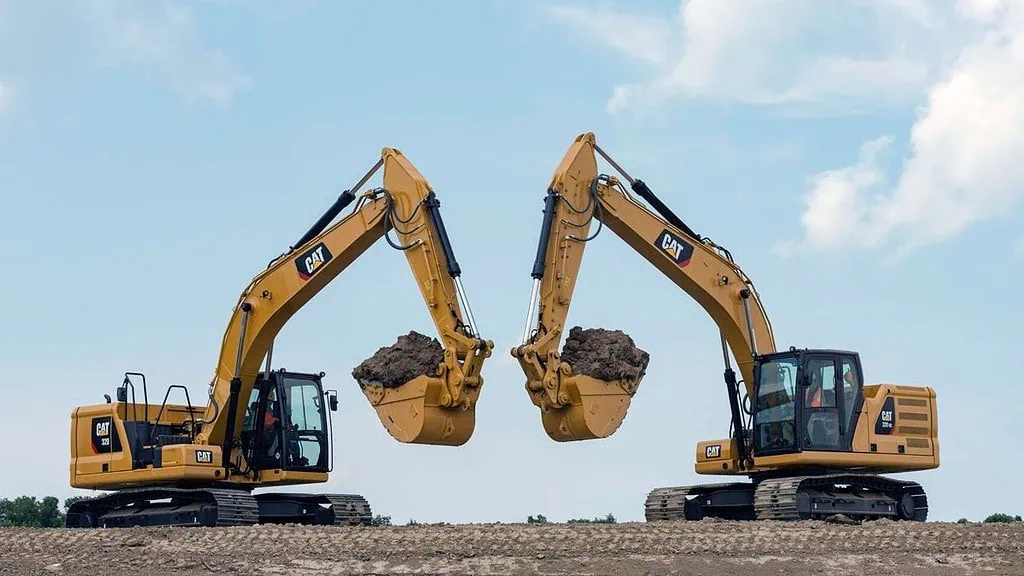
جدول المحتويات
تبديلWhat Are the Basic Type of Excavator؟
There are several different types of excavators that are used for different things. We have everything from crawlers and wheels to minis and specialty excavators. Each of these machines is set up to do different things, whether you’re talking about building a road, working on a landscaping project, or digging in a tight area in an urban setting.
Crawler Excavators
The trackhoe is all about stability and power. It has tracks like a tank instead of wheels, which makes it easy to get around in soft or uneven ground. They are great for heavy-duty work like digging a foundation or doing some serious landscaping. The way the weight is distributed helps keep them from sinking into the ground, which really makes them irreplaceable on a job site.
Wheeled Excavators
Wheeled excavators are all about speed and flexibility. These machines are easy to move from job to job because of the wheels, as opposed to regular excavators that have tracks. They are fantastic for working in cities when you don’t have a lot of room to maneuver. You see them used for things like road work or taking care of utilities around town.
Mini Excavators
Mini-excavators bring a lot of strength to a small package. These little guys have the power to get a lot of work done. They are perfect for working in small spaces and can even fit in some backyards. They are popular for residential work and jobs that require a bit of a softer touch. Even though they are small, mini-excavators can do a lot of the same work that the big guys can do without needing a ton of space.
Specialty Excavators
These are machines that are built for a single task. For example, you have underwater excavators that are used in marine work, and tunneling machines that are used for underground work. Each of these machines is made to do a specific job, and it does it incredibly well.
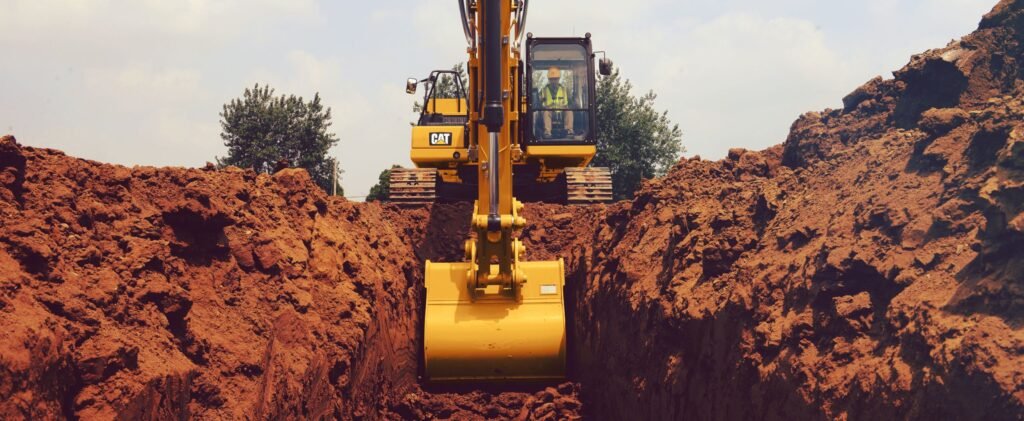
What Are the Advantages of Crawler Excavators?
Crawler excavators are known for their stability and power. These machines can do some heavy-duty work. They are great for a lot of the big stuff you might see on a major construction site. Whether you’re digging a foundation or doing some serious landscaping, these machines can handle the weight and keep moving in the worst terrain.
Trackhoes have tracks instead of wheels, which lets them get around in the mud without getting stuck. That feature makes them critical for doing some of the stuff that needs doing and for not leaving a major mess behind them. Whether you’re digging in the mud or having to put your machine to work with a serious attachment like a breaker or a grapple, these machines can handle the work.
A construction company recently used a trackhoe in a rural area to clear the site for a new housing development. The machine was able to get through the mud and rough ground, and the crew was able to get the job done quickly, despite the challenges they faced with the terrain
Which Projects Are Best Suited for Wheeled Excavators?
The wheeled excavator is all about being quick and nimble. These machines are easy to move around and get from job to job. They’re great in cities where there isn’t a lot of room to work. With the tires instead of tracks, they get much better traction on the road itself.
A wheeled excavator is great for road work, utilities, and things like that. When you’re working on city streets, these machines allow you to get from job to job quickly, which helps you get in and out faster. Because they’re smaller and move faster than their trackhoe cousins, they don’t disrupt traffic flow as much.
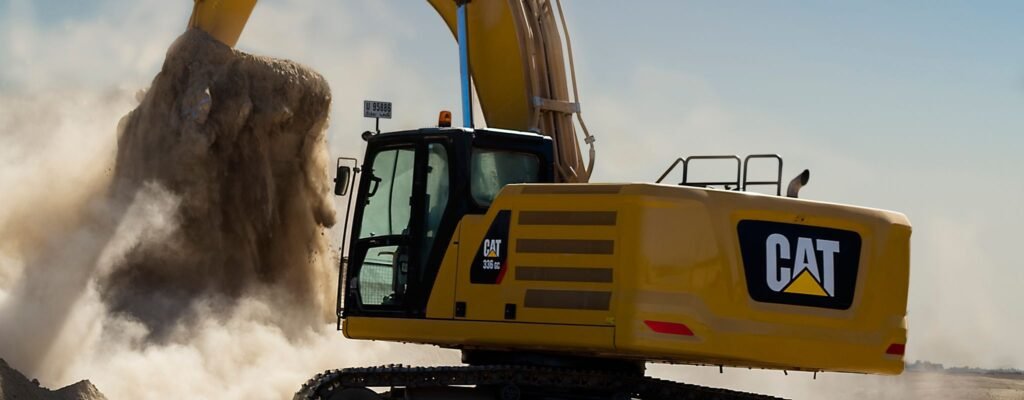
Where Are Mini Excavators Most Useful?
Mini excavators are something you should consider for smaller jobs or jobs where you need to have a light touch. These machines are perfect for residential work and for work that you need to do in a space that doesn’t have a lot of wiggle room.
Construction Sites
Road Construction: Mini excavators are commonly used in road construction for tasks such as digging trenches for utility lines alongside roads, excavating ditches for drainage, and digging holes for signposts or traffic signals. Their compact size and maneuverability make them ideal for working in tight roadside spaces.
Demolition: In the demolition of small structures like sheds, garages, or small houses, mini excavators can be used to break up concrete, tear down walls, and remove debris. Their compact size allows them to work in confined spaces and their hydraulic attachments make them versatile for different demolition tasks.
Landscaping: Mini excavators are widely used in landscaping for tasks such as digging holes for trees and shrubs, creating landscape features like ponds or waterfalls, and grading land for proper drainage and contours. Their small size and precision make them well suited for detailed landscaping work.
Utility Installation and Repair: Mini excavators are often used by utility companies for installing and repairing water, sewer, and electrical lines. Their ability to dig trenches and excavate in tight spaces makes them valuable for these types of tasks.
These are just a few examples of the many construction and excavation applications for mini excavators. Their versatility, compact size, and maneuverability make them useful for a wide range of tasks in various construction and maintenance settings.
Homeowners and landscapers are big fans of mini-excavators when they need to do things like dig a trench for a utility line or get rid of that giant oak stump in the backyard. Their small size means they don’t make a mess and can be used in sensitive areas like a garden or a residential backyard without having to worry about tearing it all up.
What Specialty Type of Excavators Exist?
Specialty excavators are something you might see pop up for a specific task. For example, underwater excavators are equipped to work underwater on things like a levee or a dam. These machines are built to handle the conditions they’ll be dealing with. In a similar vein, machines like a tunneling machine are made specifically to work underground and get the job done in that exact environment.
Underwater excavators help with things like levees or dams in water. Tunneling machines go deep underground to work and do the job they’ve been designed for. Whether you’re talking about building a subway or improving an underground utility system, that kind of work has to get done and these machines are built to do it. They perform specific work in their unique environments.
How Do You Choose the Right Excavator?
Choosing which machine to use comes down to your project, your budget, and where you’re going to be working. You need to know what you’re getting into, what you’re working on, and what you need to have to get things done the right way.
Factors to Consider:
Project scale: How big is the job you’ve got in front of you? A bigger job is going to need a bigger machine. A smaller job might be able to get done with a mini-excavator or a wheeled machine.
Terrain: What are you going to be driving and working on? A trackhoe is great in the mud, but it’s going to leave a mess on the road.
Budget: How much can you spend? If you’re in a pinch and only need a machine for a little while, you might be better off renting than buying new.
Talking with the experts or your supplier can help you figure out which machine is going to be the best for your needs. A lot of times, they can help you get your hands on a machine so that you can try it out and see what it can do before you make a commitment.
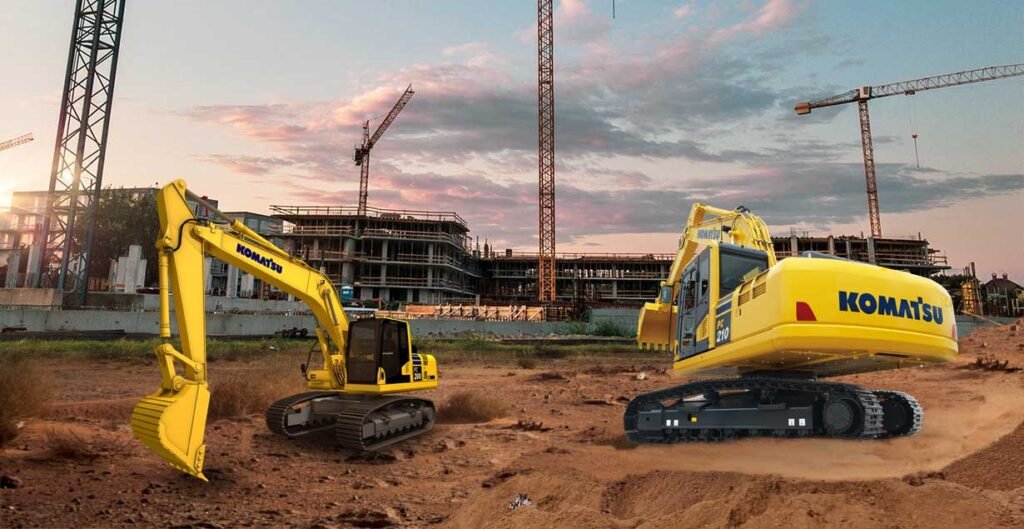
What Should You Consider for Excavator Maintenance and Care?
If you want your machine to last, you have to take care of it. That means keeping an eye on the hydraulic fluid, making sure your tracks or tires are good to go, and doing your regular oil changes.
Perform a daily walk-around to check for leaks, worn hoses, and loose fittings. Catching potential problems early can save you from expensive downtime and repairs. Also, keep an eye on your fluid level and condition to make sure everything stays in optimal condition.
Maintenance Tips: Follow the manufacturer’s recommendations for maintenance and create a regular service schedule. Doing things like changing your hydraulic fluid on a regular basis is crucial. Dirty fluid can be a death sentence for your hydraulic system, and staying on top of your fluid level is vital for smooth operation.
When Is It Better to Rent an Excavator?
If you don’t need a machine all the time or want to upgrade but don’t have the money for a new machine yet, renting can be a great option. Whether you’re looking to rent or buy, there are options available to you.
Pros of Renting: Renting is great if you’ve got a project with a fixed end date or if you’re not going to use a machine all the time. With most places, you can rent a machine to match the job you’ve got in front of you, and you can always upgrade to a new machine every time you rent.
Cons of Renting: But, if you’re using a machine all the time or have a lot of work in front of you, buying might be the way to go. Once you own a machine, you’re not paying to rent it and you can use it whenever you need to. Think about what you’re going to do with the machine and how you’re going to pay for it.
What Are the Future Trends in the Excavator Industry?
The way things are going in the industry, manufacturers are starting to automate machines and make them more fuel-efficient. You’re starting to see a lot more technology making its way onto machines to help you track your fuel burn and operate your machine from a distance.
Furthermore, the push for sustainability is resulting in the development of electric and hybrid machines that produce fewer emissions. These machines are designed to use less fuel and help companies meet their sustainability goals. If you want to keep ahead in this industry, you need to know what’s going on and how to make it work for your business.
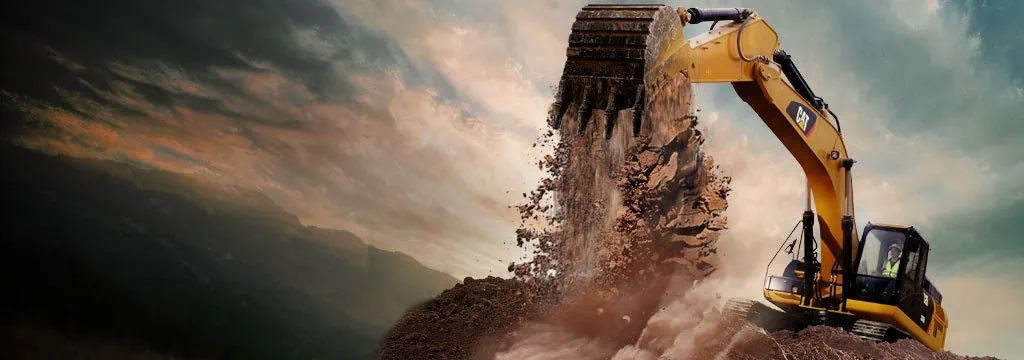
What Are the Key Factors to Consider When Choosing an Excavator?
Think about what your project is, how big it is, what kind of ground you’re going to be on, and what you need to have to get the job done. Also, keep in mind how much you’ve got to spend. Whether you’re trying to get a utility line run to your new house or create a new farming operation, you need to have the right machine for the job.
Practical considerations: Think about how much weight and power you need and how fast you need to be to make it work. Consulting with the experts: If you don’t know what to do, talk with the experts in the field or the people who make the machines. These folks can help you figure out which one is going to be the best machine for you.
ملخص
Understand all the different types of machines and which is going to be the best fit for the work you’ve got in front of you. Also, think about your project, what you’ve got to spend, and what you’re going to need to do to keep the machine on the job site.If you need second-hand construction machinery please اتصل بي or send me an inquiry.

